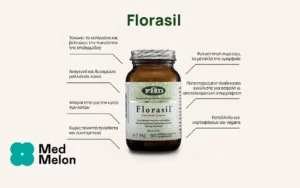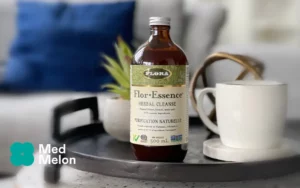Scientific Names of Peppermint Leaf: Mentha x piperita L. [Fam. Lamiaceae]
Forms:
Peppermint leaf tea; Alcohol extracts of peppermint; peppermint oil
Traditional Usage:
– Antibacterial
– Antinflammatory (for mucous membranes)
– Antifungal
– Antiseptic (externally)
– Antispasmodic
– Anti-ulcer
– Antiviral
– Bile Deficiency
– Breathing Disorders
– Bronchitis
– Carminative
– Cellular Regeneration
– Cough
– Cold
– Colic
– Digestive Cramps
– Digestive Disorders
– Dyspepsia
– Fatigue
– Fever
– Flatulence
– Gall Bladder Conditions
– Gastrointestinal Disorders
– Headaches
– Herpes
– Insomnia
– Irritable Bowel Syndrome (IBS)
– Menstrual Cramps
– Mental Fatigue
– Nasal Congestion
– Neuralgia (topically)
– Nervous tension
– Sedative
– Stomachaches
– Ulcers
Overview:
Peppermint, Mentha x piperita L. [Fam. Lamiaceae], is a popular culinary and medicinal herb used around the world, often taken after a meal for its ability to reduce indigestion and colonic spasms by reducing what is called the gastrocolic reflex. Peppermint tea was also traditionally used in Europe as a medicine to treat colds, fevers, headaches, nervous tension, insomnia, and to alleviate digestive disorders including colic, flatulence and dyspepsia. The German Commission E also recognizes it for treating gall bladder disorders and bile deficiency. Studies demonstrate that peppermint oil significantly increases bile secretion. Recent studies have confirmed the effectiveness of peppermint oil for relieving smooth muscle spasms and researchers now recommend it for facilitating colonoscopy and other medical procedures involving the gastrointestinal tract. Peppermint oil, as a smooth muscle relaxant and saliva stimulant, also relieves acid indigestion (gastro-esophageal reflux disease) and chest pain or dysphagia associated with Diffuse Esophageal Spasm (DES), an uncommon condition that results in simultaneous esophageal contractions. In European folk tradition, peppermint leaf tea was also used as an antispasmodic for treating menstrual cramps and as a sedative. Experimentally, peppermint oil counteracts mental fatigue. Peppermint oil has strong antimicrobial properties against viral, bacterial and fungal infections and can be used both internally and externally. Studies show that peppermint extract is effective against herpes simplex, Newcastle disease and other viruses. Menthol, the principal constituent of the oil, is an anodyne (a pain-relieving medicine, milder than analgesic) used topically to treat neuralgia and inflammation of the mucous membranes of the nose. A monoterpene found in peppermint oil, limonene, also has been shown to have tremendous activity in combating abnormal growths. Limonene has chemo-preventive activity against rodent mammary, skin, liver, lung, pancreatic and upper stomach abnormal growths and is under evaluation in Phase I clinical trials with humans.
Active Ingredients:
Peppermint leaves contain: 0.5-4% essential oil containing several monoterpenes including menthol and menthol esters (especially the acetate and isovalerianate), menthone, menthofuran, azulene, alpha-pinene, beta-pinene, (R)-(+)-limonene, perillyl alcohol, 1,8-cineol, isomenthone, (R)-(+)-pulegone, menthyl acetate and caryophyllene. There are also many tannins, flavonoids, sesquiterpenes, triterpenes and other bitter substances in the leaves.
Suggested Amount:
It can be taken as a tea with the recommended dosage of a warm cup of tea taken three to five times a day between or after meals, or as required. The infusion of coarsely cut or powdered leaves is made using 1.5g (ca. 1 tablespoon) of herb material to 150ml of boiling water. The boiling water is poured over the herb material and extracted for 5-10 minutes. Alternatively, 5-15g of tincture can be taken daily, or other preparations taken correspondingly. For washes, a 5% infusion is recommended.
Drug Interactions:
None known
Contraindications:
Peppermint tea is contraindicated in the case of gallstones without proper consultation with a doctor.
Side Effects:
As with other essential oils, pure peppermint essential oil can cause contact dermatitis and is also toxic when ingested. Menthol, a major component of the oil, can also cause allergic reactions in susceptible persons.
References:
Crowell PL. 1999. Prevention and therapy of cancer by dietary monoterpenes. J Nutr. 1999 Mar; 129(3): 775S-778S. Review.
Orr WC, Chen CL, Sloan S. 2001. The role of age and salivation in acid clearance in symptomatic patients with gastro-oesophageal reflux disease. Pharmacol Ther. 2001 Sep; 15(9): 1385-8.
Imai H, Osawa K, Yasuda H, Hamashima H, Arai T, Sasatsu M. 2001. Inhibition by the essential oils of peppermint and spearmint of the growth of pathogenic bacteria. Microbios. 2001; 106 Suppl 1: 31-9.
Umezu T, Sakata A, Ito H. 2001. Ambulation-promoting effect of peppermint oil and identification of its active constituents. Biochem Behav. 2001 Jul-Aug; 69(3-4): 383-90.
Wichtl M (ed). 1994. Menthae piperitae folium – Peppermint leaf. In Herbal Drugs and Phyto-pharmaceuticals. (English translation by Norman Grainger Bisset). CRC Press, Stuttgart, pp. 336-338.




